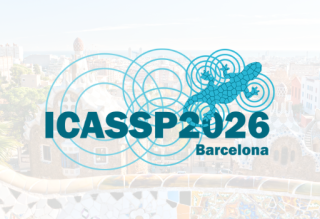- Our Story
- Publications & Resources
- Publications & Resources
- Publications
- IEEE Signal Processing Magazine
- IEEE Journal of Selected Topics in Signal Processing
- IEEE Signal Processing Letters
- IEEE Transactions on Computational Imaging
- IEEE Transactions on Image Processing
- IEEE Transactions on Information Forensics and Security
- IEEE Transactions on Multimedia
- IEEE Transactions on Signal and Information Processing over Networks
- IEEE Transactions on Signal Processing
- IEEE TCI
- IEEE TSIPN
- Data & Challenges
- Submit Manuscript
- Guidelines
- Information for Authors
- Special Issue Deadlines
- Overview Articles
- Top Accessed Articles
- SPS Newsletter
- SigPort
- SPS Resource Center
- Publications FAQ
- Blog
- News
- Dataset Papers
- Conferences & Events
- Community & Involvement
- Professional Development
- For Volunteers
- Information for Authors-OJSP
-
Home
Conferences Events IEEE Signal Processing Magazine IEEE SPL Article IEEE TIFS Article IEEE TMM Article IEEE TSP Article Jobs in Signal Processing Lectures Machine Learning Seasonal Schools Signal Processing News SPM Article SPS Distinguished Lectures SPS Newsletter Article SPS Webinar SPS Webinars SPS Webinar Series Webinar webinars
-
Our Story
What is Signal Processing?

The technology we use, and even rely on, in our everyday lives –computers, radios, video, cell phones – is enabled by signal processing. Learn More » -
Publications & Resources
-
SPS Resources
- Signal Processing Magazine The premier publication of the society.
- SPS Newsletter Monthly updates in Signal Processing
- SPS Resource Center Online library of tutorials, lectures, and presentations.
- SigPort Online repository for reports, papers, and more.
- SPS Feed The latest news, events, and more from the world of Signal Processing.
-
SPS Resources
-
Conferences & Events
-
Community & Involvement
-
Membership
- Join SPS The IEEE Signal Processing Magazine, Conference, Discounts, Awards, Collaborations, and more!
- Chapter Locator Find your local chapter and connect with fellow industry professionals, academics and students
- Women in Signal Processing Networking and engagement opportunities for women across signal processing disciplines
- Students Scholarships, conference discounts, travel grants, SP Cup, VIP Cup, 5-MICC
- Young Professionals Career development opportunities, networking
- Get Involved
-
Technical Committees
- Applied Signal Processing Systems
- Audio and Acoustic Signal Processing
- Bio Imaging and Signal Processing
- Computational Imaging
- Image Video and Multidimensional Signal Processing
- Information Forensics and Security
- Machine Learning for Signal Processing
- Multimedia Signal Processing
- Sensor Array and Multichannel
- Signal Processing for Communication and Networking
- Signal Processing Theory and Methods
- Speech and Language Processing
- Technical Working Groups
- More TC Resources
-
Membership
-
Professional Development
-
Professional Development
- Signal Processing Mentorship Academy (SigMA) Program
- Micro Mentoring Experience Program (MiME)
- Distinguished Lecturer Program
- Distinguished Lecturers
- Distinguished Lecturer Nominations
- Past Lecturers
- Distinguished Industry Speaker Program
- Distinguished Industry Speakers
- Distinguished Industry Speaker Nominations
- Industry Resources
- IEEE Training Materials
- Jobs in Signal Processing: IEEE Job Site
-
Career Resources
- SPS Education Program Educational content in signal processing and related fields.
- Distinguished Lecturer Program Chapters have access to educators and authors in the fields of Signal Processing
- Job Opportunities Signal Processing and Technical Committee specific job opportunities
- Job Submission Form Employers may submit opportunities in the area of Signal Processing.
-
Professional Development
-
For Volunteers
-
For Board & Committee Members
- Board Agenda/Minutes* Agendas, minutes and supporting documentation for Board and Committee Members
- SPS Directory* Directory of volunteers, society and division directory for Board and Committee Members.
- Membership Development Reports* Insight into the Society’s month-over-month and year-over-year growths and declines for Board and Committee Members
-
For Board & Committee Members
Popular Pages
Today's:
- Submit Your Papers for ICASSP 2026!
- Information for Authors
- Last Call for Nominations: Technical Committee Vice Chair and Member Positions
- Take Part in the 2025 Low-Resource Audio Codec (LRAC) Challenge
- IEEE JSTSP Special Issue on Advanced AI and Signal Processing for Low-Altitude Wireless Networks
- (ICME 2026) 2026 IEEE International Conference on Multimedia and Expo
- IEEE Signal Processing Letters
- IEEE Transactions on Information Forensics and Security
- (ASRU 2025) 2025 IEEE Automatic Speech Recognition and Understanding Workshop
- Submit a Manuscript
- Access Restricted
- IEEE Transactions on Multimedia
- Information for Authors-SPL
- Membership
- (ICASSP 2026) 2026 IEEE International Conference on Acoustics, Speech, and Signal Processing
All time:
- Information for Authors
- Submit a Manuscript
- IEEE Transactions on Image Processing
- IEEE Transactions on Information Forensics and Security
- IEEE Transactions on Multimedia
- IEEE Transactions on Audio, Speech and Language Processing
- IEEE Signal Processing Letters
- IEEE Transactions on Signal Processing
- Conferences & Events
- IEEE Journal of Selected Topics in Signal Processing
- Information for Authors-SPL
- Conference Call for Papers
- Signal Processing 101
- IEEE Signal Processing Magazine
- Guidelines
Last viewed:
- Information for Authors
- Take Part in the 2025 Low-Resource Audio Codec (LRAC) Challenge
- Signal Processing Mentorship Academy (SigMA) Program
- Overview Articles
- IEEE Transactions on Signal and Information Processing over Networks
- IEEE Transactions on Multimedia
- Call for Proposals: (SAM 2026) 2026 IEEE Sensor Array and Multichannel Signal Processing Workshop
- (CAI 2026) IEEE Conference on Artificial Intelligence 2026
- How to be a Good Reviewer
- Submit a Manuscript
- Conference Call for Papers
- (CAI 2025) 2025 IEEE Conference on Artificial Intelligence
- IEEE TSIPN Special Issue on Learning on Graphs for Biology and Medicine
- Conferences & Events
- Governance Documents
Post Doctoral and PhD Positions in Signal and Image Processing for Cellular Microscopy – University of Texas at Dallas
You are here
Newsletter Menu
Newsletter Categories
Top Reasons to Join SPS Today!
1. IEEE Signal Processing Magazine
2. Signal Processing Digital Library*
3. Inside Signal Processing Newsletter
4. SPS Resource Center
5. Career advancement & recognition
6. Discounts on conferences and publications
7. Professional networking
8. Communities for students, young professionals, and women
9. Volunteer opportunities
10. Coming soon! PDH/CEU credits
Click here to learn more.
News and Resources for Members of the IEEE Signal Processing Society
Post Doctoral and PhD Positions in Signal and Image Processing for Cellular Microscopy – University of Texas at Dallas
(Source: Information from IEEE Jobsite)
Post-doc and Ph.D. positions are available to carry out research in signal and image processing for cellular microscopy, in particular single molecule microscopy.
The imaging of the dynamics of single molecules in live cells has the promise of revolutionizing cell biology and has attracted very significant attention cell biology, biophysics and physical chemistry. These techniques bring about unique challenges regarding the analysis of the acquired images since the signal from the single molecules is typically very weak in the presence of significant sources of noise. At the same time the biological requirements demand that distances between proteins are measured well below the classical resolution limits. A major aspect of our research program has been the development of signal and image processing approaches to address these exciting problems. The NIH supported projects aim to develop parameter estimation approaches and novel tracking methodologies for the particular problems.
The positions will provide the opportunity to not only work on projects of significant technical interest but also to become familiar with the fundamental biological questions that are being addressed in the laboratory. Specifically the laboratory investigates the trafficking of therapeutically relevant engineered antibodies in live cell environment, a problem that is major interest in the biopharma industry, due to the applications for the treatment of major diseases such as cancer. For more information on the research carried out in the laboratory see www4.utsouthwestern.edu/wardlab.
Highly motivated individuals with a background in signal processing, statistics, applied mathematics or equivalent qualification will be considered. Direct experience is not necessary. These positions provide the opportunity for the successful candidate to gain expertise in advanced microscopic techniques applied to important problems in biotechnology. Please send inquiries (resume, names of referees etc.) to
Prof. Raimund Ober Department of Electrical Engineering Department of Bioengineering University of Texas at Dallas Email: ober@utdallas.eduOpen Calls
| Nomination/Position | Deadline |
|---|---|
| Call for Mentors: 2025 IEEE SPS SigMA Program - Signal Processing Mentorship Academy | 14 September 2025 |
| Last Call for Nominations: Technical Committee Vice Chair and Member Positions | 15 September 2025 |
| Call for Nominations: Technical Committee Vice Chair and Member Positions | 15 September 2025 |
| Submit Your Papers for ICASSP 2026! | 17 September 2025 |
| Call for Nominations: Awards Board, Industry Board and Nominations & Elections Committee | 19 September 2025 |
| Meet the 2025 Candidates: IEEE President-Elect | 1 October 2025 |
| Take Part in the 2025 Low-Resource Audio Codec (LRAC) Challenge | 1 October 2025 |
| Call for proposals: 2027 IEEE Conference on Artificial Intelligence (CAI) | 1 October 2025 |
| Call for Nominations for the SPS Chapter of the Year Award | 15 October 2025 |
| Submit a Proposal for ICASSP 2030 | 31 October 2025 |
| Call for Project Proposals: IEEE SPS SigMA Program - Signal Processing Mentorship Academy | 2 November 2025 |
Technical Committee News
Society News
- 2010 Annual Reporting and Rebate Requirements
- Member-at-Large Elections: Call for Nominations
- Activity Report from SPS Malaysia Chapter
- 49 SPS Members Elevated to IEEE Fellow
- Meng selected as an Academician of the Academia Sinica
- New IEEE Offices in Asia
- 2011 IEEE Membership Renewal
- Upcoming Distinguished Lectures – January 2011
- Signal Processing Society Members Receive 2012 IEEE Medals
Publications News
Research Opportunities
Conferences & Events
Education & Resources
New Books
SPS Social Media
- IEEE SPS Facebook Page https://www.facebook.com/ieeeSPS
- IEEE SPS X Page https://x.com/IEEEsps
- IEEE SPS Instagram Page https://www.instagram.com/ieeesps/?hl=en
- IEEE SPS LinkedIn Page https://www.linkedin.com/company/ieeesps/
- IEEE SPS YouTube Channel https://www.youtube.com/ieeeSPS
Home | Sitemap | Contact | Accessibility | Nondiscrimination Policy | IEEE Ethics Reporting | IEEE Privacy Policy | Terms | Feedback
© Copyright 2025 IEEE - All rights reserved. Use of this website signifies your agreement to the IEEE Terms and Conditions.
A public charity, IEEE is the world's largest technical professional organization dedicated to advancing technology for the benefit of humanity.








